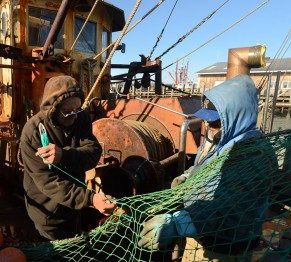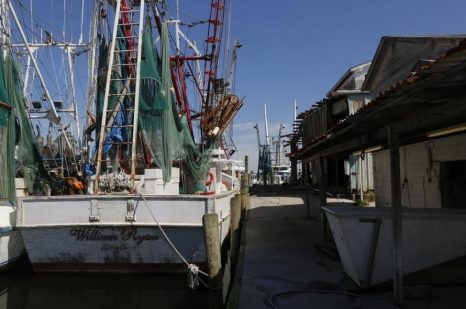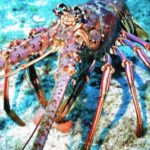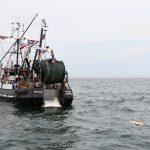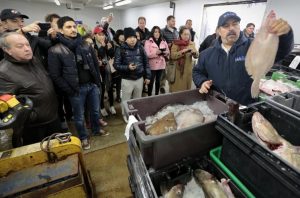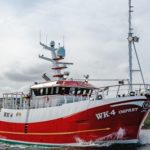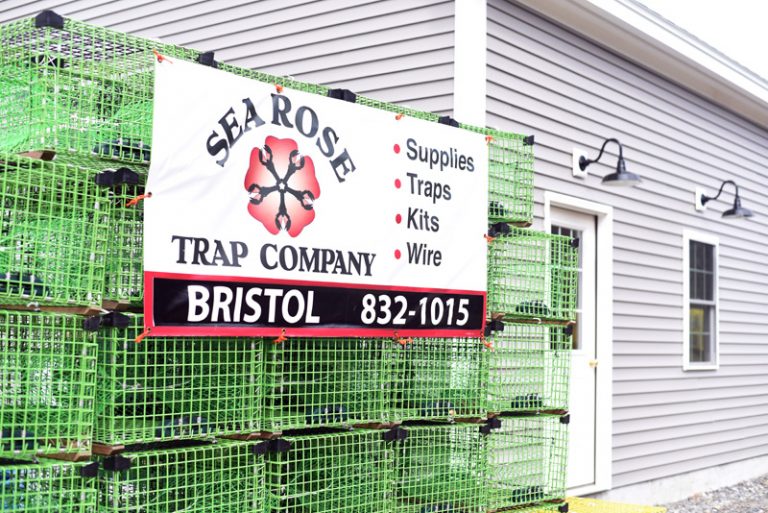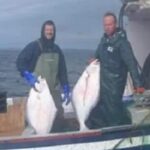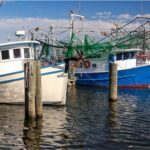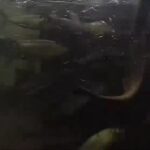Tag Archives: Catch Shares
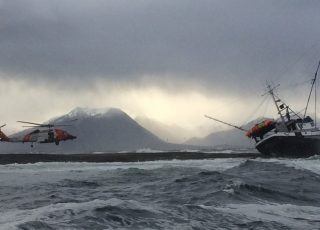
Catch Shares – Costs rise while values fall; season starts uncertain during shutdown
Fishermen in Alaska who own catch shares of halibut, sablefish and Bering Sea crab will pay more to the federal government to cover 2018 management and enforcement costs for those fisheries. ,, “The value of the halibut fishery was down 24 percent year over year, while sablefish was down 21 percent,” Greene said, adding that the decreases stemmed primarily from lower dock prices. ,,, Fish shutdown shaft-Hundreds of boats that are gearing up for the January start of some of Alaska’s largest fisheries could be stuck at the docks due to the government shutdown battle between President Donald Trump and Senate Democrats. >click to read<14:40
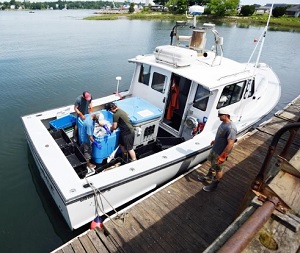
Catching fish is the easy part, Quota system? Not so much
The Finlander is a 36-foot Northern Bay and one of two vessels operated by New England Fishmongers. On a good day, Finlander’s crew will haul in 1,000 to 2,000 pounds of fish, according to Capt. Tim Rider.,,, However, because Rider’s multi-species commercial fishing permit only allows him the ability to catch 103 pounds of cod a year, a quota the Finlander crew can hit in less than a day of fishing, Rider said he is forced to lease additional quota from other fisheries, many of whom are not actively fishing. Since cod quota is leased at between $3.25 and $3.50 per pound, Mondays big catch is virtually a wash.,,, Due to the quota system, Rider says he pays more than half of New England Fishmongers’ annual income to lease quota. >click to read<07:51
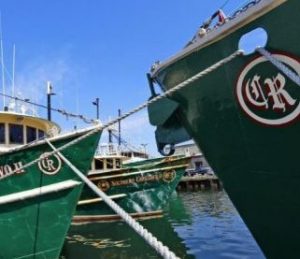
Don Cuddy: Sector reopenings benefit to New Bedford remains to be seen
The news emerged on July 19 that NOAA approved a plan that may now permit some New Bedford fishermen back to work. ,,,So while this decision is a small step forward for the groundfish industry here, it is not yet time to set the church bells ringing since the majority of the inactive quota is owned by inactive fishermen. When the catch share system was introduced in 2010 it gave all permit holders a slice of the pie- the “pie” being a share of the TAC, or total allowable catch, for the annual fishing year, which for groundfish begins on May 1. Individual allocations were based on a permit holder’s catch history over a ten-year period from 1998 to 2008, I believe it was. That effectively means all of the cod, haddock and flounder swimming around on Georges Bank, more than one hundred miles offshore, have someone’s name on their backs, similar to a herd of cattle,,, leased , sold, or traded,,, >click to read<20:53

Council for Sustainable Fishing – SAFMC Efforts to decrease the number of charter and headboats
Charter and headboat operators are now living one of these horror movies as the South Atlantic Fishery Management Council once again moves forward with limiting the number of for-hire snapper-grouper permits, this time through Snapper-Grouper Amendment 47. And now the SAFMC is not just talking about limiting the number of charter and headboats, they are now talking about decreasing the number. This has nothing to do with fishery sustainability. A limited-entry fishery is the first step toward a catch share fishery, one that will set up a “stock market” for permits. >click to read, comment<14:21
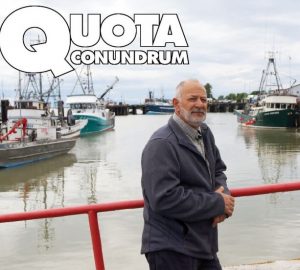
Canfisco hopes to defend quota system at Ottawa committee
Richmond-based Canfisco hopes to present to a new Standing Committee on Fisheries and Oceans examining West Coast fishery regulations come next February, at the latest. Rob Morley, vice-president, production and corporate development at Canadian Fishing Company (Canfisco), told the Richmond News Monday that the present licensing and quota system so often criticized by the likes of independent fishers and environmental groups has merits. There is growing concern — including Liberal MP Ken Hardie, who requested the committee — that licenses and quotas are becoming too expensive to lease and prohibitively expensive to purchase. As such, capital-rich companies and investors are taking fishing profits from community-based fishers. >click to read<08:25

Offshore ‘slipper skippers’ and local monopolies target of new fishing industry study
If you have ever purchased fish at Fisherman’s Wharf, there’s a 50/50 chance the bulk of your money will make its way into the pockets of an investor, who may not even be able to pinpoint Steveston on a map. Such investors, both foreign and domestic, own government-issued quotas and licenses and lease them to fishers for a cut of the catch. Because profit margins for fishers are already razer thin, the extra costs of the quotas and licenses means young, new and independent fishers find it difficult to get a foothold in the industry. This regulatory system is being called into question by Fleetwood Port Kells Liberal MP Ken Hardie. Fishers have long complained about the ownership structure of licences and individual transferable quotas (ITQs), or catch shares,,>click to read< 20:08
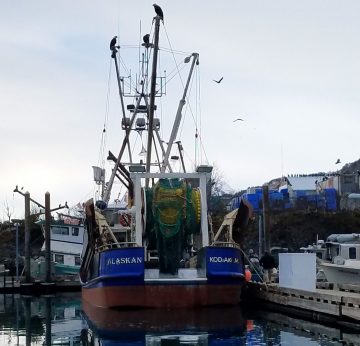
Graying of Alaska’s Fishing Fleet Puts Key Industry in Peril
Once known for its young guns, Alaska’s commercial fishing fleet is now full of graybeards. The average Alaska fisher is now older than 50, according to the University of Alaska’s Sea Grant program. That is a big change from 1975, when fishers under 40 held half of commercial fishing permits in rural Alaska.,,, At the heart of the problem, experts have concluded, is “rationalization,” the system that has transformed Alaska fisheries from an open-access free-for-all into tightly managed harvests governed by quota shares and “limited-entry” permits that must be inherited or purchased – with prices that can soar well above $100,000. >click to read< 09:00
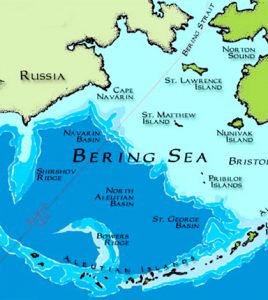
Bering Sea Cod caught quickly – “I wouldn’t be surprised if it’s the shortest ever,”
The Bering Sea federal trawl cod fishery closed in what may be record time on Feb. 11, just 22 days after the Jan. 20 opener, according to National Marine Fisheries Service Biologist Krista Milani in Unalaska/Dutch Harbor.,,, The North Pacific Fishery Management Program is now considering a plan to restrict the number of boats eligible to fish for cod in the Bering Sea. The fish council floated ideas to limit catcher vessel participation in the Bering Sea cod fishery, including controversial catch shares or individual fishing quotas, during a December meeting in Anchorage. >click to read< 15:00 
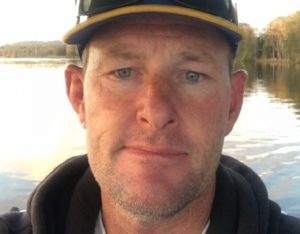
Fishing reforms set to proceed after NSW fisherman loses battle in Supreme Court
Mud crab fisherman Dean Elliott has lost his case against the New South Wales Government in a David and Goliath battle over reforms in the fishing industry. Mr Elliott, a commercial fisherman on the state’s mid-north coast, claimed the reforms were “unreasonable” and “capricious” and had left him without an occupation, and facing a loss of up to half a million dollars.,,, critical changes came into effect last year that will force many of them out of the industry.,, But Justice Stephen Rothman dismissed the case in the NSW Supreme Court today,,, >click to read< 19:31
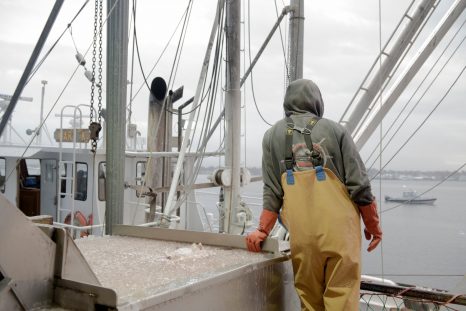
A Famed Fishing Port Staggers as Its ‘Codfather’ Goes to Jail
Carlos Rafael, whose initials are emblazoned on boats all over this port city, boasted that his fishing empire was worth even more than official records showed.,,Fishermen, ice houses and shoreside suppliers who once did business with Mr. Rafael are anxious, as their own businesses have slowed or stopped. As Mr. Rafael sits in prison, having pleaded guilty to lying about his catches and smuggling cash out of the country, nearly two dozen of his boats have been barred from fishing for species like cod and haddock, grinding part of the centuries-old maritime economy in the nation’s most lucrative fishing port to a halt. >click to read< 16:45 
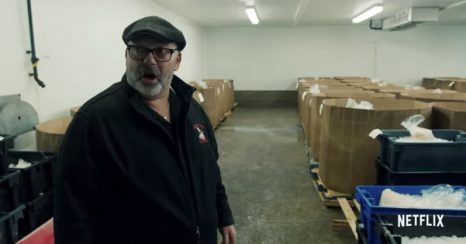
‘Cod is Dead’ uses New Bedford to highlight hurdles affecting fishermen
One of the first scenes in “Rotten: Cod is Dead” opens at night in the Port of New Bedford. Spotlights atop the fishing vessels light the area. A few belong to Carlos Rafael, noted by their green color and “CR” logo.,,, The hour long show looks beyond Rafael and focuses on catch shares in the New England Fishery. >click here to read< 19:05
EDF says Rotten gets it wrong about New England and catch shares – >click here to read< 
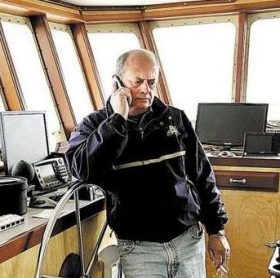
The government is what created Carlos Rafael
Bill Straus saw the writing on the wall years ago. In 2009 -eight years before Carlos Rafael went to prison – the representative of Bristol’s 10th District spoke out during the establishment of the current catch-share system in the Northeast fishery. And even with Rafael behind bars, Straus says the threat of another Codfather emerging is ever present. “The risk is still there,” Straus said. “And that’s why what comes out of the different remedies is so important. >click here to read< 22:52
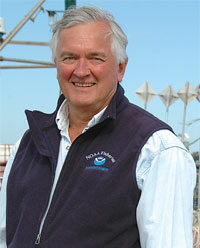
John Bullard: SectorIX board’s failure to act stopped its fishing
For New Englanders, Atlantic cod is not just another fish. The Sacred Cod that hangs in the Massachusetts State House is a testament to the cod’s place in our culture and history. For centuries, we fished for cod, as we watched the stock decline, we tried various ways to protect the resource this is considered as much a birthright as a commodity. In 2009, the New England Fishery Management Council under the Magnuson-Stevens Act, agreed to try a system called “catch shares” which worked well on the West Coast. click here to read the op-ed 20:52 
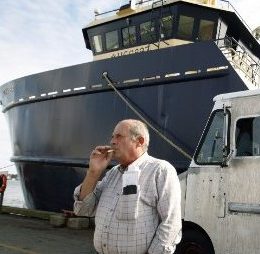
What’s fair in breaking up the empire of ‘the Codfather’?
Randy Cushman, a fourth generation fisherman in Maine, knows what the crimes of Carlos Rafael cost him.,,, Rafael, whose downfall came after he boasted of his scheme to undercover IRS agents posing as Russian mobsters, is now serving a 46-month sentence in federal prison.,,, Senator Elizabeth Warren fired off a letter in August warning of “needless, immense damage” if permits leave New Bedford. Governor Charlie Baker asked that the permits at least stay in Massachusetts. click here to read the story 07:16
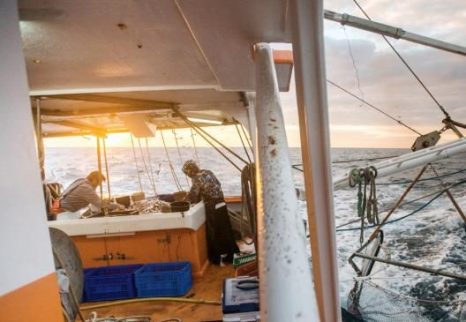
Gold Coast prawn prices ‘highest in 35 years’ ahead of Christmas according to seafood shops
Seafood lovers have been told to brace for an expensive festive season with Gold Coast prawn prices already at a 35-year high at some retailers. The price of large king prawns, at $40 a kilogram, are already at Christmas peak levels.“I’ve never seen prices this high at this time of year,” said Tasman Star Seafoods co-owner Peter Duncombe. The price hike has been blamed on major reforms in the NSW commercial fishing industry have resulted in fewer prawn boats out on the water, a “fizzer” start to the season for trawlers, and a fallout from the devastating white spot disease which shut down Gold Coast prawn farms this year. click here to read the story 15:45
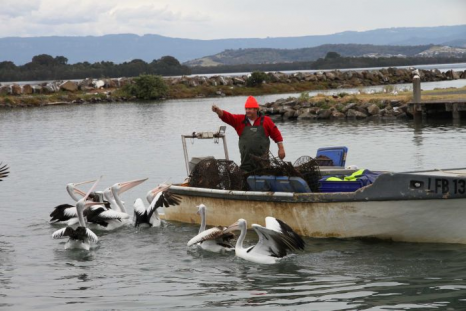
‘Lazy’ NSW fishing reforms breach ‘hierarchy of wealth’ test, fishing consultant says
Daryl Sykes now manages the NZ Rock Lobster Industry Council, but has been involved with reforms in Queensland, Victoria and in Commonwealth waters as a member of the Australian Fish Management Authority. He said the reform model in NSW “didn’t look at the individual fishing businesses” and had ignored the “hierarchy of wealth” principles underpinning other reforms. He also said it was not based on science, was lazy in its approach, and had ignored widespread concern in the industry about the devastating impact it had on family fishing businesses. click here to read the story 19:03
Catch Shares – New Zealand’s fisheries quota management system: on an undeserved pedestal
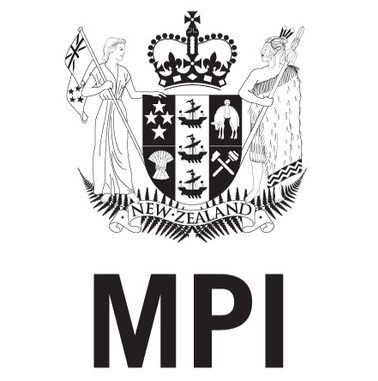 In popular imagination, New Zealand’s fisheries management system is a globally recognised story of sustainability, reflecting a “clean and green” environmental ethos. Indeed, New Zealand’s fisheries have been ranked among the best managed in the world – an accolade based on the early and wholehearted adoption of a Quota Management System (QMS). This perception is echoed in a recently published article, but we take issue with the methodology and its conclusions. Claims that New Zealand’s QMS is an unmitigated success simply do not match the facts. click here to read the story 18:32
In popular imagination, New Zealand’s fisheries management system is a globally recognised story of sustainability, reflecting a “clean and green” environmental ethos. Indeed, New Zealand’s fisheries have been ranked among the best managed in the world – an accolade based on the early and wholehearted adoption of a Quota Management System (QMS). This perception is echoed in a recently published article, but we take issue with the methodology and its conclusions. Claims that New Zealand’s QMS is an unmitigated success simply do not match the facts. click here to read the story 18:32
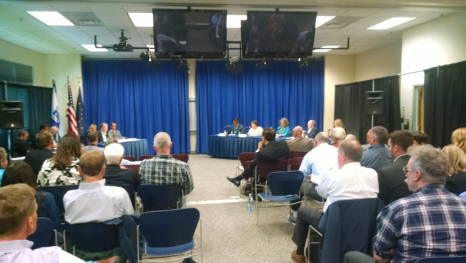
Fish pie – Everyone wants a piece
Representatives of the haves and have-nots of American ocean fisheries gathered in a packed college classroom here on Wednesday to offer Sen. Dan Sullivan, R-Alaska, their ideas on what he could do with the Magnuson-Stevens Fisheries Conservation and Management Act. The now 40-year-old federal fisheries legislation is the legacy of the late and revered Alaska Sen.Ted Stevens.,,, And there is no doubt the MSA has problems when it comes to dealing with recreational fishing. Anglers, charter-boat operators, commercial fishermen and environmental groups are at the moment all in a Gulf of Mexico scrum fighting over red snapper. It is in many ways a tussle that almost makes the long-running fish war in Cook Inlet look tame. click here to read the story 08:25
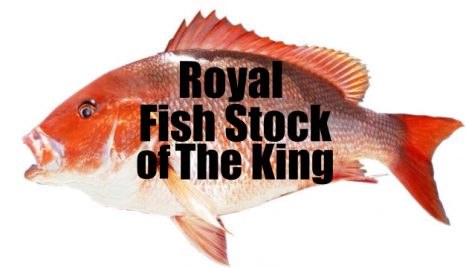
Brad Gentner: It’s time to rethink ‘catch shares’
Catch shares in marine fisheries is a concept unfamiliar to most people, and it is probably completely alien to most hunters and anglers in this country. It is a system of wildlife management that bestows some percentage of a public marine resource, like red snapper in the Gulf of Mexico, to private businesses for free, to use and sell for their own profit. It was thought that by giving away ownership rights to individuals, the fishery would consolidate and ultimately become easier to manage. While the same number of fish would be caught, the benefits of funneling access to the resource through fewer entities was thought to remove some of the uncertainty in the industry and thus would be worth the price of privatizing a public resource for free. While catch shares are still the darling of some fisheries economists, there is a growing backlash against this management tool worldwide for a variety of reasons. At the heart of these complaints is fleet and wealth consolidation, extraction of public wealth for private profit, and failure to capitalize share-cost into production costs. click here to read the op-ed 21:46
CATCH SHARES – NOT A VIABLE OPTION FOR THE NORTHEAST
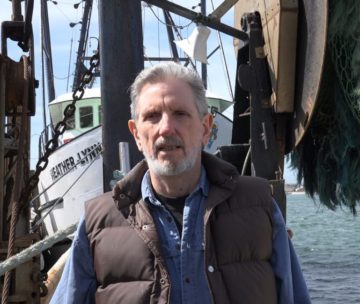 Theoretical constructs that might hold together logically and appear sound often quickly disintegrate in the atmosphere outside their esoteric bubble. This was certainly the case for catch shares or transferable quota management in the New England groundfishery. Catch shares in New England disintegrated almost upon entry. What are catch shares and where did they come from? Catch shares or the commoditization of the fish poundage to be caught, or the ownership of the “right” to harvest a certain portion of the government managers’ scientifically sanctioned total yearly catch, is a construct of “free market environmentalism” theory. The “enviropreneurs” or “enviro-capitalists” claim that ownership equals good stewardship, equals profitability. This privatization push is actually an idea of economics, claiming production “efficiency”, and not one of fishery conservation—although the sales pitch promotes this scheme as the answer to “overfishing”, and just in the nick of time. Click here to read the article 14:58
Theoretical constructs that might hold together logically and appear sound often quickly disintegrate in the atmosphere outside their esoteric bubble. This was certainly the case for catch shares or transferable quota management in the New England groundfishery. Catch shares in New England disintegrated almost upon entry. What are catch shares and where did they come from? Catch shares or the commoditization of the fish poundage to be caught, or the ownership of the “right” to harvest a certain portion of the government managers’ scientifically sanctioned total yearly catch, is a construct of “free market environmentalism” theory. The “enviropreneurs” or “enviro-capitalists” claim that ownership equals good stewardship, equals profitability. This privatization push is actually an idea of economics, claiming production “efficiency”, and not one of fishery conservation—although the sales pitch promotes this scheme as the answer to “overfishing”, and just in the nick of time. Click here to read the article 14:58
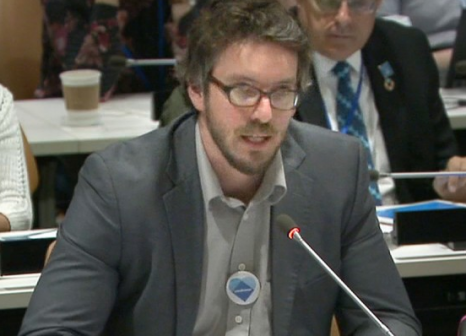
At U.N. Ocean Conference – Brett Tolley Touts Small-scale Fisheries
Fisheries activist Brett Tolley of Chatham has told many people about the plight of small-scale fishermen like his father, who left the industry because he couldn’t compete with big corporate interests. Last week, he told that story to world leaders in a special forum at the United Nations in New York.,, “We can’t buy our way out of this problem,” he said. The government rules that regulate commercial fishing tend to empower large corporations, and Tolley said that needs to change. Fisheries management that’s based on the allocation of shares (catch shares) or quotas of a particular catch tend to privatize the oceans, rather than treating them as shared public resources, he argued. Those policies tend to concentrate access to fisheries to a few big players. click here to read the story 13:47
Stop efforts to limit the number of charter and head boats — the first step toward for-hire catch shares!
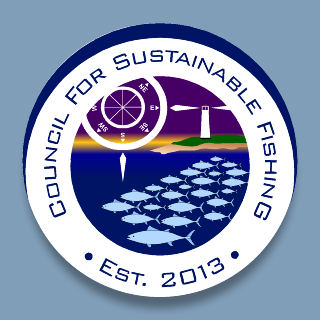 This Wednesday, June 13th, the South Atlantic Fishery Management Council will again consider snapper-grouper for-hire limited entry at its meeting in Ponte Vedra, Florida, so it’s important to tell the SAFMC that you oppose limited entry as soon as possible. Please click here today to submit a comment — just a sentence or two will do. Limited entry will set up a “stock market” for permits, setting the stage for charter and head boat catch shares — privatizing access to the fishery –- something that will destroy jobs and hurt fishing communities. click here to read the notice click here to make E-public comment by noon, 6/15/2017 07:32
This Wednesday, June 13th, the South Atlantic Fishery Management Council will again consider snapper-grouper for-hire limited entry at its meeting in Ponte Vedra, Florida, so it’s important to tell the SAFMC that you oppose limited entry as soon as possible. Please click here today to submit a comment — just a sentence or two will do. Limited entry will set up a “stock market” for permits, setting the stage for charter and head boat catch shares — privatizing access to the fishery –- something that will destroy jobs and hurt fishing communities. click here to read the notice click here to make E-public comment by noon, 6/15/2017 07:32
Did catch shares enable the Codfather’s fishing fraud?
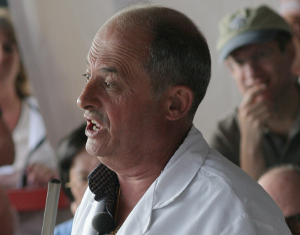 Carlos Rafael’s guilty plea late last month of falsifying fish quotas, conspiracy and tax evasion has prompted renewed criticism of one of the most contentious parts of the New England groundfish fishery’s management system: catch shares.Rafael, who dubbed himself “The Codfather,” owned one of the largest commercial fishing fleets in the United States, and for some community fishermen in New England, his case represents consolidation run amok. Consolidating fishing permits, they say, also centralizes power, making fraud more likely. But for environmentalists who support catch shares as a way to reduce overfishing, consolidation isn’t inevitable. They say Rafael’s case highlights the need for better monitoring and fraud protections to prevent the sort of cheating that can plague any fishery management system. click here to read the rest 19:09
Carlos Rafael’s guilty plea late last month of falsifying fish quotas, conspiracy and tax evasion has prompted renewed criticism of one of the most contentious parts of the New England groundfish fishery’s management system: catch shares.Rafael, who dubbed himself “The Codfather,” owned one of the largest commercial fishing fleets in the United States, and for some community fishermen in New England, his case represents consolidation run amok. Consolidating fishing permits, they say, also centralizes power, making fraud more likely. But for environmentalists who support catch shares as a way to reduce overfishing, consolidation isn’t inevitable. They say Rafael’s case highlights the need for better monitoring and fraud protections to prevent the sort of cheating that can plague any fishery management system. click here to read the rest 19:09
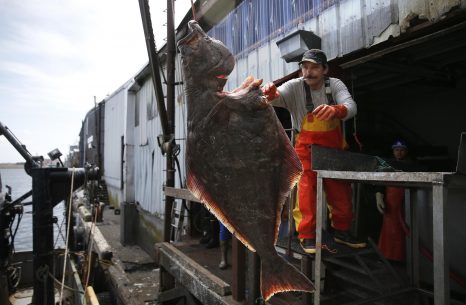
Loss of ‘Codfather’ permits could hurt New Bedford
By late morning just before Easter weekend, three fishing vessels lined up at the docks to unload their catch, and they all belonged to one man — the local mogul known as the “Codfather,” Carlos Rafael. “It’s a good haul,” a passing auction worker at the Whaling City Seafood Display Auction said under her breath, as crew members, some still in their orange waterproof bibs, unloaded the ice-packed fish. But now, Rafael’s recent conviction on federal charges that he cheated fishing regulations to boost his profits is putting his many vessels and permits up for grabs — potentially distributing them to ports along the New England coast. That would deliver an economic blow to New Bedford and the people who depend on the business created by Rafael’s fleet. If his permits are seized as expected, the National Oceanic and Atmospheric Administration, the regulatory agency known as NOAA, could reissue the permits to fishermen elsewhere in the region. “There are a lot more innocent people who could get punished by this,” said Jim Kendall, a former fisherman who runs New Bedford Seafood Consulting. click here to read the story 09:00
Brexit Allows Us To Solve This Haddock Conservation Problem By Leaving The CFP
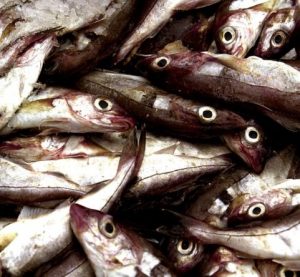 It would be terribly wrong to compare the European Union to any of the mid-20th century unpleasantnesses in Europe like fascism and the rise of the Nazis but it is true that that peaceful economic arrangement has managed something that total war did not, the rationing of fish and chips in Britain. For it is actually true that said fish and chips never was rationed. Even when the Kreigsmarine was trying to sink everything larger than a canoe which issued from Britain’s ports we still had that haddock, cod and plaice. Give it 45 years of that ever closer European union and the bureaucratic management of the Common Fisheries Policy and we’re being told that we must indeed ration our consumption:,,, It’s all there in Garret Hardin’s Tragedy of the Commons. Where there’s an open access, what Hardin calls Marxian, resource, then that is just fine. If the regeneration capacity is greater than the annual demand, then all who want can have simply by taking. (See where this is going?) continue reading the article here 14:50
It would be terribly wrong to compare the European Union to any of the mid-20th century unpleasantnesses in Europe like fascism and the rise of the Nazis but it is true that that peaceful economic arrangement has managed something that total war did not, the rationing of fish and chips in Britain. For it is actually true that said fish and chips never was rationed. Even when the Kreigsmarine was trying to sink everything larger than a canoe which issued from Britain’s ports we still had that haddock, cod and plaice. Give it 45 years of that ever closer European union and the bureaucratic management of the Common Fisheries Policy and we’re being told that we must indeed ration our consumption:,,, It’s all there in Garret Hardin’s Tragedy of the Commons. Where there’s an open access, what Hardin calls Marxian, resource, then that is just fine. If the regeneration capacity is greater than the annual demand, then all who want can have simply by taking. (See where this is going?) continue reading the article here 14:50
Zurik: Snapper barons slam FOX 8 probe, but Trump admin. may think otherwise
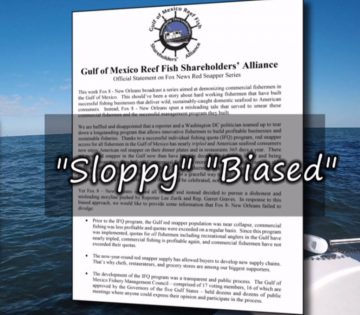 An alliance of fishermen who make millions off a public resource wants us to retract all our stories from our “Hooked Up” series. The series showed how 50 fishermen can make $23 million a year from red snapper, and many never even drop a line in the water. The Gulf of Mexico Reef Fish Shareholders’ Alliance and its executive director, Buddy Guindon, sent us a 23-page letter, calling our stories sloppy and biased. Many of the complaints focus on statements made by subjects we interviewed for our stories. They include 20 separate citations of comments in our series by Congressman Garret Graves of Louisiana.,, Graves says he’s heard from congressmen from all over the country since our five-part series was broadcast. He thinks now is the time to change the system.,,,While the group of 50 fishermen have been unhappy with our reports, we’ve heard from dozens of others with positive comments, like a Florida commercial fisherman who wrote, “Your report hit home with all our concerns in regards to how unfair the small commercial fishermen are being treated and wrongly represented.”Read the story here 12:32
An alliance of fishermen who make millions off a public resource wants us to retract all our stories from our “Hooked Up” series. The series showed how 50 fishermen can make $23 million a year from red snapper, and many never even drop a line in the water. The Gulf of Mexico Reef Fish Shareholders’ Alliance and its executive director, Buddy Guindon, sent us a 23-page letter, calling our stories sloppy and biased. Many of the complaints focus on statements made by subjects we interviewed for our stories. They include 20 separate citations of comments in our series by Congressman Garret Graves of Louisiana.,, Graves says he’s heard from congressmen from all over the country since our five-part series was broadcast. He thinks now is the time to change the system.,,,While the group of 50 fishermen have been unhappy with our reports, we’ve heard from dozens of others with positive comments, like a Florida commercial fisherman who wrote, “Your report hit home with all our concerns in regards to how unfair the small commercial fishermen are being treated and wrongly represented.”Read the story here 12:32
Independent Kodiak Fisherman Addresses his Concerns to Commerce Secretary Wilbur Ross, and Jim Balsiger
 Dear Jim & Secretary Ross, Thank you, once again, for a response to my letters (19 October, 2016) re Trawl violations in the Gulf of Alaska. I appreciated the website reference(NOAA OLE Enforcement-Actions) that allowed review of the NOVA and/or NOPS cases concluded before June 30, 2016. I await review of the February report, as well. Obviously, since my letters and your responses, the NPFMC December session indefinitely postponed or tabled the GOA Trawl Bycatch program drafting. One can only hope this matter of privatizing the groundfish which causes an extremely negative effect on other species (and fish segments) —such as halibut, and crab recovery in the GOA— has seen its end.,, Had it not been for congressional end-runs of former Senator Ted Stevens, two key things would not have happened. Read the letter here Ludger W. Dochtermann 16:52
Dear Jim & Secretary Ross, Thank you, once again, for a response to my letters (19 October, 2016) re Trawl violations in the Gulf of Alaska. I appreciated the website reference(NOAA OLE Enforcement-Actions) that allowed review of the NOVA and/or NOPS cases concluded before June 30, 2016. I await review of the February report, as well. Obviously, since my letters and your responses, the NPFMC December session indefinitely postponed or tabled the GOA Trawl Bycatch program drafting. One can only hope this matter of privatizing the groundfish which causes an extremely negative effect on other species (and fish segments) —such as halibut, and crab recovery in the GOA— has seen its end.,, Had it not been for congressional end-runs of former Senator Ted Stevens, two key things would not have happened. Read the letter here Ludger W. Dochtermann 16:52







